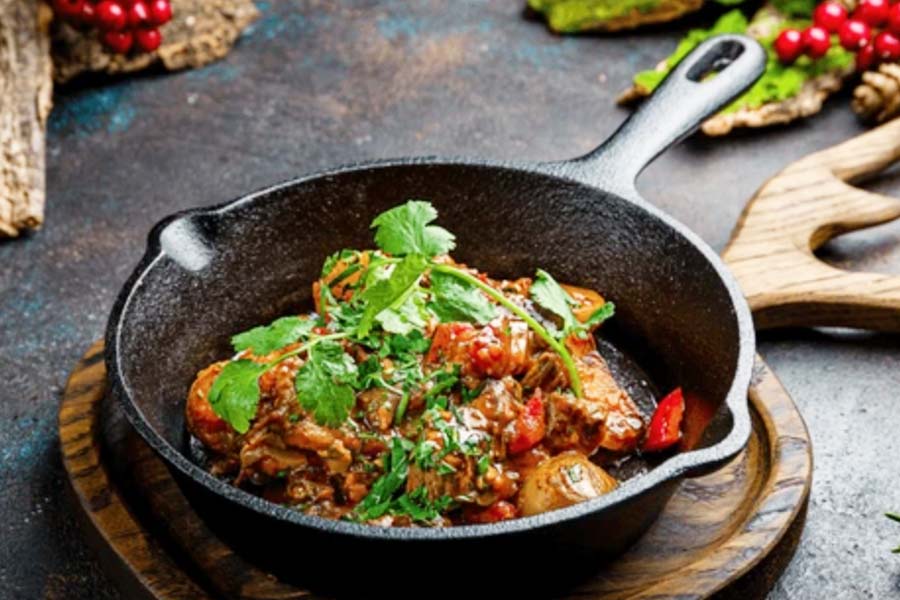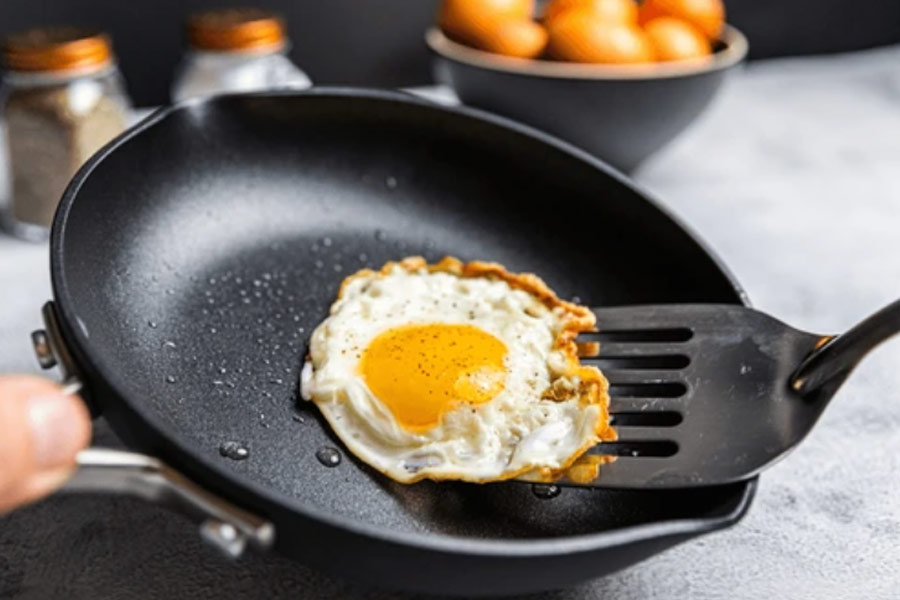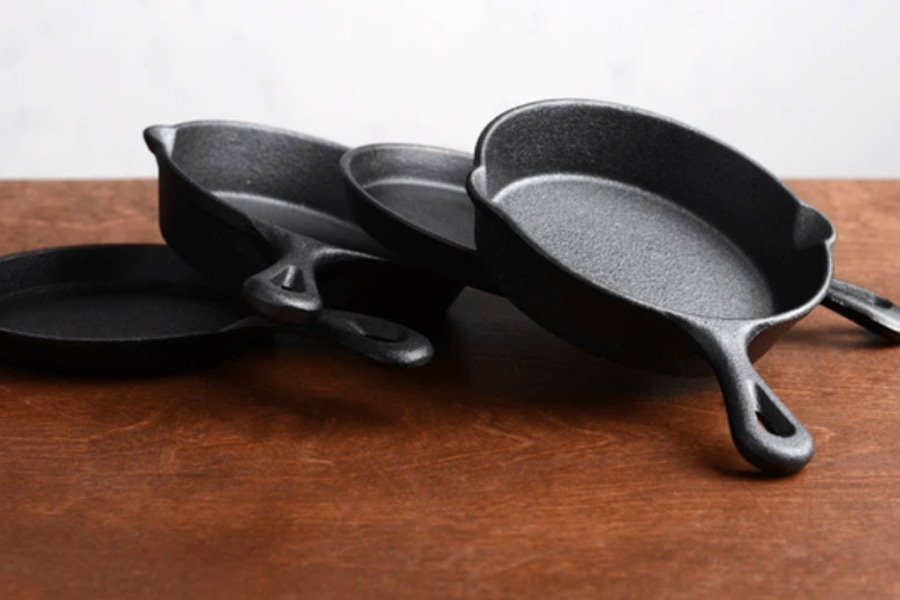A slow shift — from modern to traditional — is taking place in kitchens across the city.
Chefs are putting away the convenience of non-stick pans and reaching out for the weighty, seasoned cast iron. But nostalgia isn’t driving this change. The reason, instead, is scientific.
Growing awareness about the adverse effects of scratched or overheated non-stick vessels has made many chefs return to the age-old cast iron. Some recent studies have shown that non-stick pans may release toxins linked to long-term health risks, including cancer, if they are overused.
According to a study by San Francisco Environment Department, Per- and polyfluorinated compounds (PFAS), also known as ‘forever chemicals,’ commonly used in non-stick cookware, pose serious health and environmental risks. They have been linked to abnormal thyroid and hormone function, reduced immune system response, and some types of cancer.

Clinical nutritionist and dietitian Dr Mita Shukla from Fortis Hospital, Anandapur, Kolkata, believes that the return to cast iron is more than a culinary fad.
“In earlier times, iron kadhais or pans were widely used for cooking. While they may not cure conditions like anaemia, cooking in iron cookware can enrich food with a small but beneficial amount of iron, adding to its nutritional value. Today, most people use non-stick pans, which are convenient, but if their coating gets scratched, it can be harmful. Compared to non-stick or aluminium cookware, iron pans are a healthier and safer choice,” she said.
The taste of tradition

At Aminia, one of Kolkata’s most iconic restaurants, cast iron has never fully left the kitchen. Director Asher Ather said they turn to it for dishes that demand slow, even cooking.
“Cast iron holds heat very well and cooks the food evenly, which helps bring out a richer texture. Once it is seasoned, it works like a natural non-stick without any chemical coating,” he said.
For Shivam Poddar of Songhai Manthan, the choice is more about tradition. “In Chinese cooking, the wok is central to almost every dish. We have kept many of our cast iron woks from the early days. They are heavier and need more care, but they hold heat longer and cook more evenly. This helps us bring a depth and consistency to our food that lighter pans or non-stick simply cannot match,” he said.
Poddar is firm that avoiding Teflon-coated cookware is also a health decision. “Cast iron adds no artificial coating to your food, and when cared for properly, it keeps the taste pure.”
Dos and don’ts
The romance of cast iron is in its longevity, but that endurance comes with care. MasterChef Nayanjyoti Saikia, who often shares kitchen wisdom on Instagram, insists that a well-maintained cast iron pan can last for decades.
His advice is straightforward: never leave it wet, avoid soaking or using dish soap often, and always rub a thin layer of oil after cleaning. To re-season, heat it until it starts smoking after oiling. He warns against cooking very sour dishes that can strip the seasoning, and if rust appears, a scrub with salt or steel wool followed by re-seasoning will bring it back to life.

